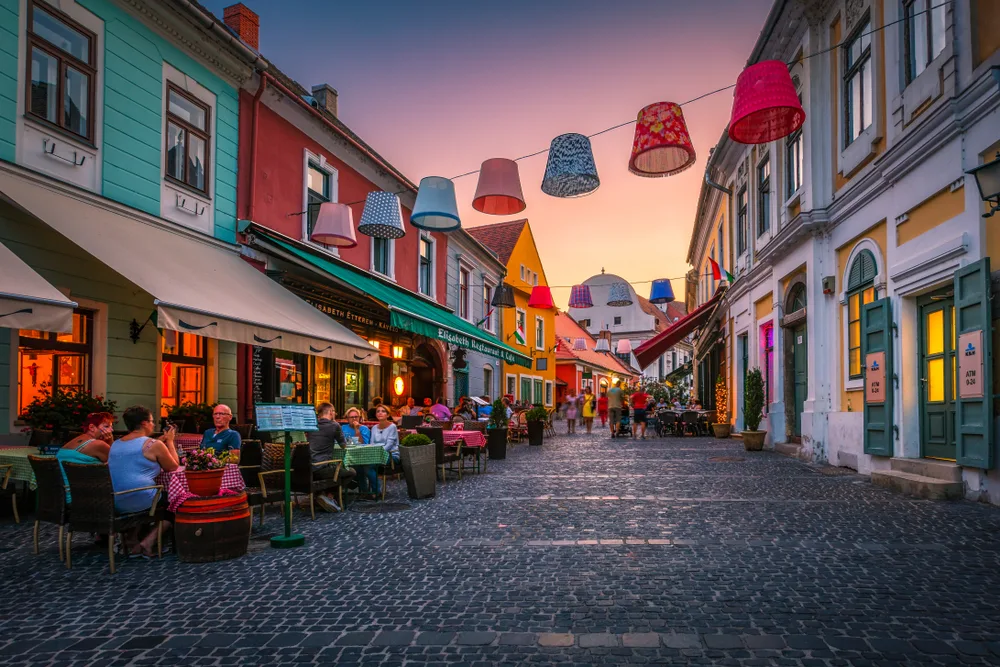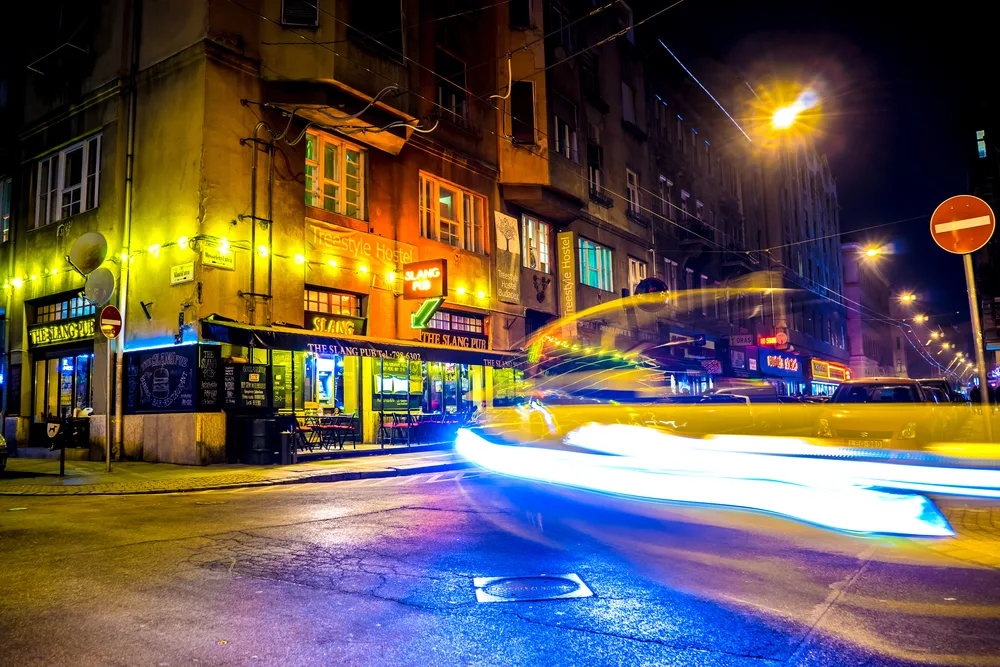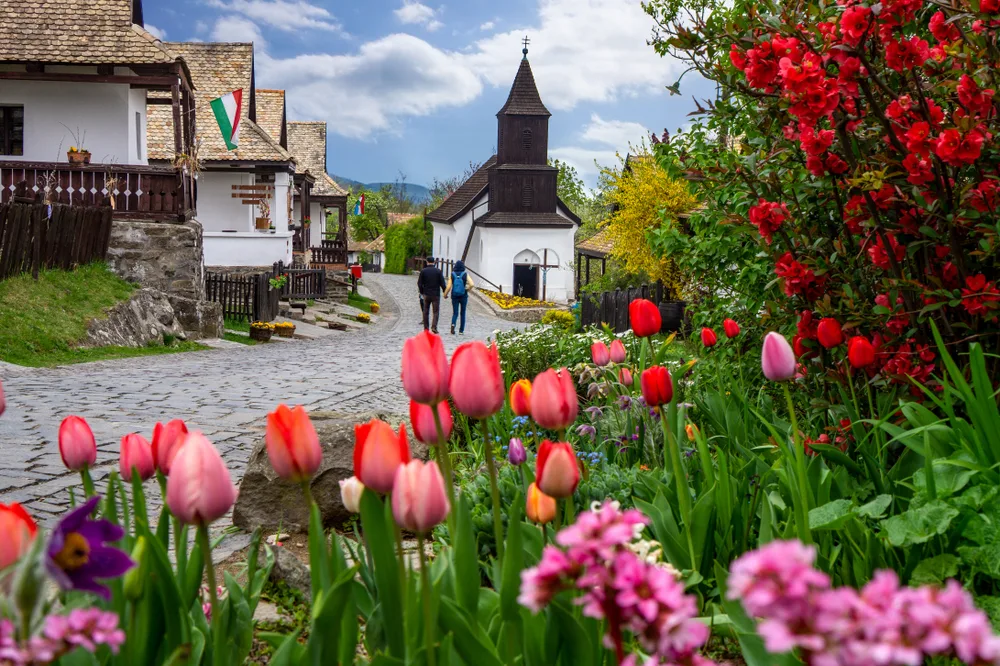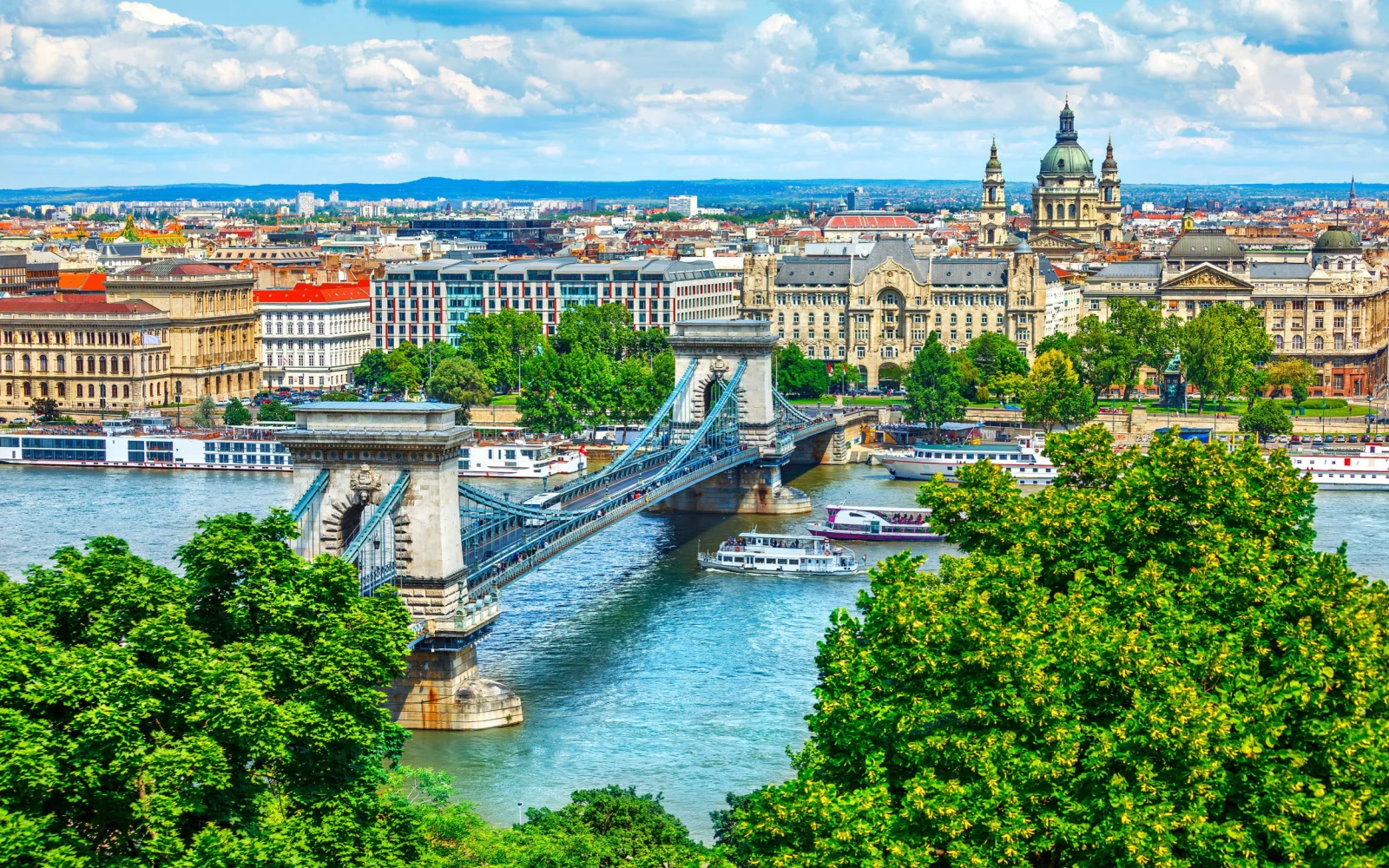Beautiful Hungary, located right in the middle of Europe, is a great destination for a city break weekend or someone looking to explore a less famous part of Europe.
Most visitors to Hungary flock to its beautiful capital Budapest, perched over the Danube, with its famous Parliament building, the Jewish quarter, and centuries-old cafés that saw many intellectuals and artists pass through.
If you venture outside of Budapest, you’ll be rewarded with more sites rich in history and culture, as well as the unique rolling landscape of the Hungarian plain.
Visit the Baroque town of Győr or the spectacular cathedral of Pécs, once a mosque during the Ottoman occupation. For an escape into nature, join the locals and head to Lake Balaton, Central Europe’s largest lake.
Hungary seems like a picture-perfect destination when you look at images of its towns and cities, but you might be wondering if the reality is just as pretty.
What will you find when you arrive — a beautiful destination or threats to your safety? Here’s our take.
Is Hungary Safe to Visit in 2026?

photo.ua/Shutterstock
Yes. For most tourists, Hungary is a very safe place to visit. The crime rate is very low, and besides pickpocketing and scams, visitors are almost never affected by crime.
Even severe weather events are rare, showing that even the weather cooperates when you want to visit Hungary! Before visiting anywhere, you should be aware of the political situation. Hungary is no different, especially since it has had a tumultuous past few years.
Most analysts characterize the government of Hungary’s president Victor Orban as authoritarian. The government controls the media, marginalizes opposition groups, and publishes a steady stream of propaganda against Hungary’s “enemies.”
The answer to whether or not Hungary is safe to visit will often depend on your identity, as the political atmosphere has allowed the growth of the far-right. Visitors who are Romani, POC, Jewish, or LGBT report feeling targeted in Hungary.
Although official hate crime numbers are low, local analysts say that the government deliberately miscounts hate crime statistics. The government’s hostility towards minority groups also prevents many people from reporting hate crime incidents.
While the prevalence of hate crimes and bigoted politics in Hungary is unfortunate, you should keep in mind that this situation primarily affects locals, not foreigners.
It is good to keep this in mind as you should know the political situation of any place you go, and you don’t want to enter into uncomfortable discussions with new local friends, but on a shorter trip to Hungary, you probably won’t experience these problems yourself directly.
In terms of crime, the danger in Hungary is very low. On its official website for tourists, the Hungarian government says that Hungary is a very safe country with a low crime rate.
Crimes that visitors might encounter include:
- Pickpocketing
- Scams
- Fraud
- Bag snatching
- Drink spiking
In terms of natural disasters, there are no particular disasters that you need to worry about in Hungary. The winters do get very cold, and summers get very hot due to the extreme climate on the plain, so make sure that you dress appropriately for the season.
Crime in Hungary

August 17, 2018: People in restaurants and coffee shops in the old town of Szentendre, Hungary/Milan Gonda/Shutterstock
In general, Hungary is a safe country to visit. You can see that from the travel advisories — countries such as the United States and Ireland just tell their citizens to exercise normal precautions while in Hungary.
For many visitors, Hungary is actually safer than their hometowns. Another indicator of a country’s relative safety is the Global Peace Index.
According to the 2022 Global Peace Index, which measures a country’s safety and security, ongoing conflicts, and militarization, Hungary is the 13th safest country in the world. For comparison, the United Kingdom is ranked at #34, and the United States is ranked at #129, far below Hungary.
The crime rate in Hungary is very low. The violent crime rate is very low. According to World Bank data collected by MacroTrends, the homicide rate in Hungary is 0.83 incidents per 100,000 people, which is one of the lowest in the world.
Other crime rates are low as well, including other incidents of violent crime and property crime.
Non-violent property crime makes up the majority of crime in Hungary, which is a good sign; although property crime will hit the wallet, it doesn’t affect anyone’s personal safety. However, opposition activists warn that Hungary’s crime statistics are not the most accurate.
The government has an interest in representing the crime situation as better than it actually is in order to hold on to power and to justify its repressive policies, including its anti-refugee policies.
Some statistics shared by official government representatives, such as the fact that crime rates fell up to 70% in the past decade, definitely feel harder to believe. Other sources do not paint such a rosy picture of crime in Hungary.
For example, the Organized Crime Index warns that Hungary suffers from a high human trafficking rate and is an important station on illegal arms and drug trafficking routes.
Even if the crime statistics aren’t quite as rosy as the government might want you to believe, the situation in Hungary is still great for tourists.
According to all evidence, incidents of violent crime are low. What criminal incidents do occur mostly affect locals, especially those from poorer backgrounds, and not visitors.
Petty Theft
The most common crime you are likely to encounter in Hungary is petty theft. Petty theft is most common in Budapest, the capital.
Budapest is Hungary’s biggest city and the most popular city with foreign tourists, creating the perfect opportunity for pickpockets to blend in with the crowds.
Although most pickpocketing incidents occur in Budapest, you should still keep a close eye on your valuables in other parts of Hungary as you never know who might be looking to take advantage of you.
Pickpocketing is the most common form of theft in Hungary. According to the UK government’s travel advisory for Hungary, pickpockets often operate on public transportation, in street markets, and at intercity train and bus stations.
Those are also places where bag snatchers like to operate. Prevention is key to avoiding petty theft. These criminals are criminals of opportunity, so as long as you don’t give them the opportunity to take from you, they’ll give up and move on to an easier victim.
Use the same common sense precautions you would use anywhere else, including at home. Don’t make yourself an obvious target by flashing lots of cash and expensive jewels.
Use a bag that zips and fits across your body instead of off one shoulder or on your back. Walk with purpose and try to avoid looking lost (even if you are). Sometimes, more violent thefts do occur in Hungary.
The Canadian government warns its citizens that there have been incidents of highway robberies, especially at night. Although driving in Hungary is mostly safe and the roads are well-maintained, be careful of anyone trying to get you to pull over in an isolated area.
Thieves sometimes pose as someone having car trouble by the side of the road or lurk at remote gas stations, then take advantage of the people who stop.
Vehicle break-ins are also common, so make sure that your valuables are out of sight if you are driving to Hungary or renting a car.
Keep them in the glove compartment or trunk. Better yet, make sure that your valuables are on your person every time you leave the car, even if you’re just going to pay for gas or stop at a convenience store.
Scams
Scams are an even more common form of theft affecting foreigners in Hungary. Criminals see a prime opportunity to take advantage of people visiting Hungary without needing to use violence or stealth, just a little bit of deception.
As with pickpocketing, scams are most frequent in Budapest. That is where most tourists visiting Hungary wind up, creating the perfect opportunity for scammers.
According to the Australian government advisory for Hungary, the most common scams involve overcharging tourists. Some bars and restaurants in the Pest area of Budapest put up an attractive façade but have menus that don’t have prices listed clearly.
When it comes time to pay, the restaurants will overcharge unsuspecting visitors. If you don’t have enough cash, a burly security guard might escort you to the nearest cash point.
Always confirm the price before ordering something in a restaurant or bar, and leave any place that doesn’t have the price listed clearly on the menu. Never take recommendations for bars, clubs, and restaurants from your taxi driver.
Taxi drivers often work in tandem with fraudulent bar owners and direct tourists on purpose to places where they know they will be scammed. A cut of the profits, of course, goes to the taxi driver.
Taxi drivers are also common scammers, like almost everywhere else in the world. Some taxi drivers will scam tourists by overcharging them. Ask your hotel for a reputable taxi company that you can travel with. The bigger cities also have ride-hailing apps such as Uber.
Avoiding Bad Areas

BUDAPEST, HUNGARY – FEBRUARY 10: Nightly Street Scene in District 7 on February 10, 2017 in Budapest, Hungary/Spectral-Design/Shutterstock
There are no dangerous areas in Hungary per se, but there are a few places where you should stay on your guard. The Pest area of Budapest is famous for its nightlife, but some club promoters and bar owners are actually scammers.
Make sure that you are giving your business to a reputable location. Also, stay on your guard for potential drink spiking. Avoid traveling to Hungary’s border with Ukraine.
There is an ongoing war in Ukraine, and while most of the conflict is in the east of the country, not near the Hungarian border, you still don’t want to get too close to the border.
In Budapest, there are a few neighborhoods that have slightly higher crime rates. These tend to be concentrated around District 8 and District 10, which are further away from the city center.
There are also a lot of pickpockets on the metro and around the intercity train or bus stations. Trust your instincts when moving around the city — if a street feels sketchy, return to an area that feels safer.
Things to Consider
Here are some things to keep in mind when traveling in Hungary:
- When you take the Budapest metro, make sure that you buy and validate your ticket. Ticket inspectors don’t take kindly to clueless foreigners.
- Although LGBT relationships are legal in Hungary, attitudes are very regressive on this question, and out LGBT travelers report feeling uncomfortable.
- There have been some instances of drink spiking in Budapest bars and clubs, so keep an eye on your drinks.
- In the countryside, roads are poorly maintained, but the main roads are fairly safe.
Frequently Asked Questions

berni0004/Shutterstock
Here are some other things you might want to know about Hungary:
How safe is Hungary for tourists?
Hungary is very safe for tourists. The crime rate is very low, and plenty of tourists visit each year with no incidents. Although some people are nervous since Hungary shares a border with Ukraine, the war has not affected Hungary so far.
Is Budapest safe to visit now?
Yes, Budapest is safe to visit now. The crime rate may be high by Hungarian standards, but it is still one of the lowest crime rates for any capital city in the world. Visitors are only at risk of petty crime, and violent incidents are rare.
Do they speak English in Hungary?
It depends on who you ask. Most younger people speak at least some English, as well as people working in tourism-related jobs in Budapest, but you might struggle with just English in smaller towns.
Is Hungary cheap or expensive?
Hungary is affordable for both visitors and residents. Even the capital, Budapest, has one of the lowest costs of living anywhere in Europe.
Is Budapest safe to walk at night?
The major tourist areas of Budapest, for example, the area around Buda Castle, are safe to walk around at night. However, be careful in remoter neighborhoods.
So, Is Hungary Safe to Visit?
In general, Hungary is safe to visit thanks to its low crime rate. However, not all visitors have the same experience, and due to the entrenched right-wing politics, many LGBT or non-white travelers report feeling uncomfortable in Budapest. Happy travels!



